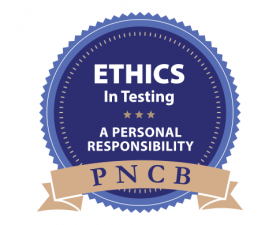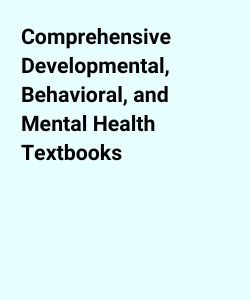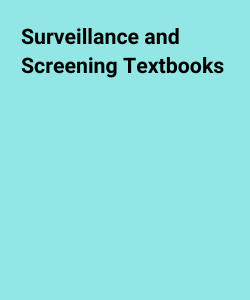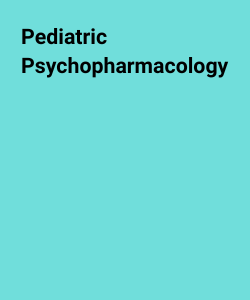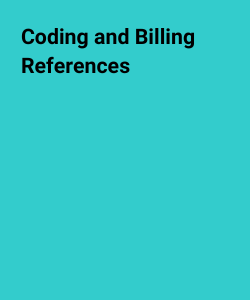PMHS Exam Resources
The exam is 2.5 hours and asks 150 multiple-choice questions based on categories in the content outline, an essential study reference. PNCB offers the resources below to help you create a personal study plan and prepare, plus a short video of suggestions from PMHSs.
These study resources are not inclusive of all resources that may be used in the preparation of the certification exam. The PNCB Board of Directors does not endorse the content of or approve specific training programs, study guides, review courses, or other examination preparation products. Purchase of preparatory materials for PNCB certification examinations are not required and do not guarantee a passing score on the examinations.
Tip! Check out our recorded webinar to walk through the PMHS exam content outline and take a deep dive into eligibility to apply.
Use this step-by-step checklist to help you plan and prepare for your exam.
The content outline/test blueprint is an essential tool as you study. It describes all subject areas covered by the exam and questions per category.
PNCB certification exams are comprehensive tests, so be sure to study all areas of the content outline. All questions that rely on DSM information reference DSM-5.
Tip! This exam tests your ability to apply knowledge and use critical thinking skills to determine one best answer among answer choices.
The current content outline is based on our 2020-2021 Job Task Analyses (JTA) research. This routine, required research ensures that exam content accurately represents current pediatric developmental, behavioral, and mental health services in primary care practice in the U.S.
Content for the exam has not changed considerably, and you do not need to study differently. After the JTA, a passing point determination follows construction of new exam forms and establishes minimum passing scores using standard psychometric methods, such as Item Response Theory and Modified-Angoff scoring. Learn more about the exam form development process.
See full details about the latest 2020-2021 study in our executive summary and 2020-2021 PMHS Exam PowerPoint.
The below list is an overview of possible resources as you prepare for the Pediatric Primary Care Mental Health Specialist Certification Exam. Our PMHS exam item writers and committee members have found the most current edition of the following references useful for their review. Additions or deletions to this list are a result of exam committee member input. The PNCB does not provide or endorse specific review courses or materials for certification preparation.
Textbooks and Related Resources
- Child and Adolescent Behavioral Health: A Resource for Advanced Practice Psychiatric and Primary Care Practitioners in Nursing
By EL Yearwood, GS Pearson, JA Newland (Eds) - Developmental and Behavioral Pediatrics: A Handbook for Primary Care
By MS Augustyn, BS Zuckerman - Developmental and Behavioral Pediatrics
By RG Voigt, MM Macias, SM Meyers, CD Tapia - Dulcan’s Textbook of Child and Adolescent Psychiatry
By MK Dulcan - Mental Health Care of Children and Adolescents: A Guide for Primary Care Clinicians By JM Foy
- DSM-5-TR: Diagnostics and Statistical Manual of Mental Disorders
By American Psychiatric Association - Behavioral Pediatric Healthcare for Nurse Practitioners: A Growth and Developmental Approach to Intercepting Abnormal Behaviors
By D Hallas - Clinical Guide to Pediatric Sleep: Diagnosis and Management of Sleep Problems
By JA Mindell, JA Owens
- A Practical Guide to Child and Adolescent Mental Health Screening, Evidence-Based Assessment, Intervention, and Health Promotion
By BM Melnyk, P Lusk - Bright Futures: Guidelines for Health Supervisions of Infants, Children, and Adolescents
By AAP, JF Hagan, JS Shaw, PM Duncan - BURNS’ Pediatric Primary Care
By DL Garzon, NB Starr, MA Brady, NM Gaylord, M Driessnack, KG Duderstadt
- Clinical Handbook of Psychotropic Drugs for Children and Adolescents
By D Elbe, TR Black, IR Mcgrane, S Choi - Pediatric Psychopharmacology for Primary Care
By MA Riddle, JV Campo, et al. - The Prescriber’s Guide – Children and Adolescents: Stahl’s Essential Psychopharmacology
By SM Stahl, JR Strawn
- DSM-5-TR: Diagnostics and Statistical Manual of Mental Disorders
By American Psychiatric Association
Respected Clinical Practice Guidelines/Statements/Reports
Preparatory resources include this list of respected clinical practice resources.
Websites
Mental Health Initiatives, Primary Care Tools (American Academy of Pediatrics)
The REsource for Advancing Children's Health (REACH): Resources for families and professionals
National Initiative for Children's Healthcare Quality
Centers for Disease Control (CDC)
Children and Adults with Attention-Deficit/Hyperactivity Disorder (CHADD)
Professional Associations and Programs
American Academy of Child and Adolescent Psychiatry
American Psychiatric Nurses Association
International Society of Psychiatric Nurses (ISPN)
Society for Developmental and Behavioral Pediatrics
OTHER RESOURCES (FOR PROVIDERS AND FAMILIES)
- ADHD: Caring for Children with ADHD: A Resource Toolkit for Clinicians (Spanish/English).
- Autism: Caring for Children with Autism Spectrum Disorders: A Resource Toolkit for Clinicians.
- Barkley RA. Taking Charge of ADHD: The Complete, Authoritative Guide for Parents.
- Greene RW. The Explosive Child: A New Approach for Understanding and Parenting Easily Frustrated, Chronically Inflexible Children.
- Hallowell EM, Ratey JJ. Driven to Distraction (Revised): Recognizing and Coping with Attention Deficit Disorder.
- Kemper KJ. Mental Health Naturally: The Family Guide to Holistic Care for a Healthy Mind and Body.
- Phelan T. 1-2-3 Magic: 3-Step Discipline for Calm, Effective, and Happy Parenting.
- Reiff MI. ADHD: What Every Parent Needs to Know.
- Rosenblatt A. Autism Spectrum Disorder.
- Siegel DJ. Brainstorm: The Power and Purpose of the Teenage Brain.
- Siegel DJ. The Whole-Brain Child: 12 Revolutionary Strategies to Nurture your Child’s Developing Mind.
Discount Information
American Academy of Pediatrics Discount. Save 20% on 35 bestselling print books or eBooks and other digital resources from the AAP. Includes Red Book and Red Book Online, Textbook of Neonatal Resuscitation, PCEP, Nelson's, Pediatric Clinical Practice Guidelines and Policies, Bright Futures, and more. Log into your PNCB portal and find your code under “Your Benefits & Discounts.” Then order online at https://www.aap.org/shopaap and apply the promotion code at checkout. Or call toll-free at (888) 227-1770 and mention the PNCB promotion code. Discount available through June 30, 2028.
The PMHS Practice Test offers in-depth rationale for right answers to enhance critical thinking. Score reports can help you focus studies.
The cost is $36. You receive unlimited attempts of 50 questions for 150 days.
PNCB's Test-taking Strategies resource is a free PowerPoint developed to help you learn exam preparation tips, strategies for answering multiple-choice exam questions, and techniques to manage test anxiety. Not a study or a review course.
You are taking a big step in your career and preparing for a Pediatric Nursing Certification Board (PNCB) certification exam. We hope you find the information about Preparing to Take your Board Exam helpful.
Sample Questions
Note that these are only sample question types you may encounter and do not reflect the scope or degree of difficulty of the exam. The answer key is located at the bottom of the page.
Select the ONE answer that is BEST in each case.
1. A genogram is an important assessment tool because it provides a method of
2. A child with generalized anxiety disorder (GAD) and ADHD is experiencing significant difficulties completing assignments in school. Caregivers are seeking information regarding medications. Response to their concerns is based on the knowledge that
3. Which of the following SSRI medications has the longest half-life?
4. The caregiver of a school-age child with a diagnosed developmental delay expresses concerns about the child’s increasing behavioral problems and constant arguing. The caregiver states, “This kid is just bad and won’t listen.” Which of the following is the MOST effective first step?
5. An 8 year old has had chronic irritability and mood swings for approximately 1.5 years, occurring almost daily across multiple settings. Several times a week the child has episodes of verbal and occasional physical aggression. There is no history of appetite loss or sleep disturbance. These symptoms are MOST consistent with which of the following diagnoses?
Answers and References:
1. Answer: C
References:
- Dulcan, M. K. (2022). Dulcan's textbook of child and adolescent psychiatry (3rd ed.). American Psychiatric Association.
- Garzon, D. L., Dirks, M., Driessnack, M., Duderstadt, K. G., & Gaylord, N. M., (Eds.). (2025). Burns' pediatric primary care (8th ed.). Elsevier.
2. Answer: D
References:
- Augustyn, M., & Zuckerman, B. (2019). Zuckerman Parker handbook of developmental and behavioral pediatrics for primary care (4th ed.). Wolters Kluwer.
- Voight, R. G., Macias, M. M., Myers, S.M., & Tapia, C. D. (Eds.). (2018). Developmental and Behavioral Pediatrics (2nd ed.). American Academy of Pediatrics.
3. Answer: C
References:
- Stahl, S. M. (2024). Stahl’s essential psychopharmacology prescriber’s guide: Children and adolescents (2nd ed.). Cambridge University Press.
4. Answer: D
References:
- Voight, R. G., Macias, M. M., Myers, S.M., & Tapia, C. D. (Eds.). (2018). Developmental and Behavioral Pediatrics (2nd ed.). American Academy of Pediatrics.
- Foy, J. M. (2018). Mental health care of children and adolescents: A guide for primary care clinicians. American Academy of Pediatrics.
5. Answer: B
References:
- American Psychiatric Association (2013). DSM-5: Diagnostic and statistical manual of mental disorders (5th ed.). American Psychiatric Association
- Foy, J. M. (2018). Mental health care of children and adolescents: A guide for primary care clinicians. American Academy of Pediatrics.
See this video for more about preparing for the PMHS exam from those who have earned the credential.
